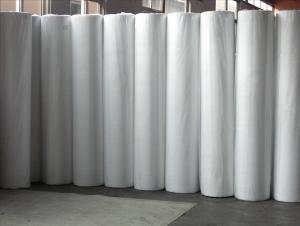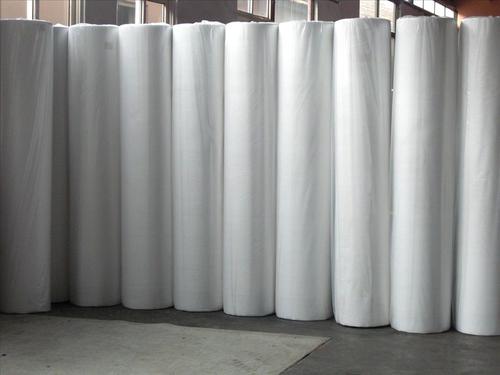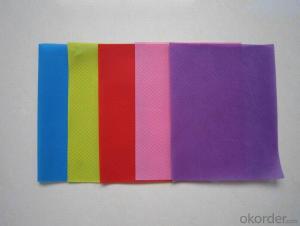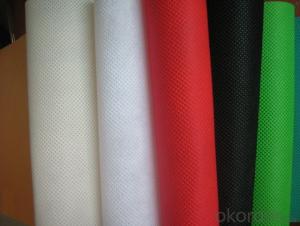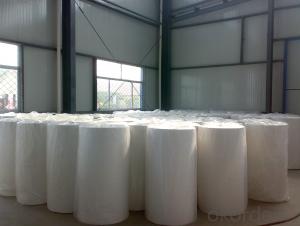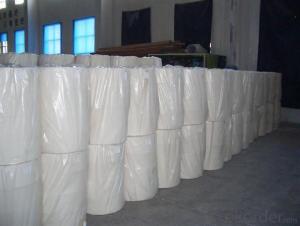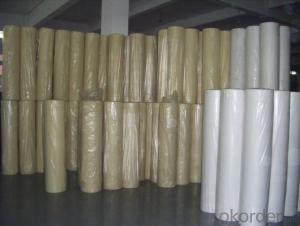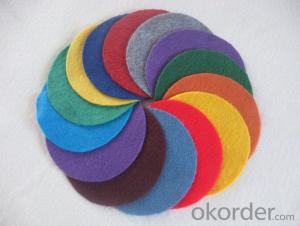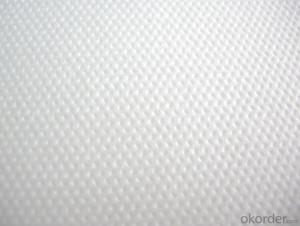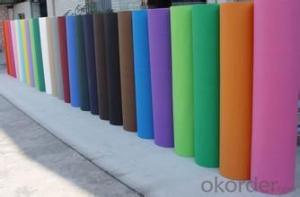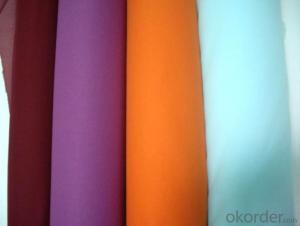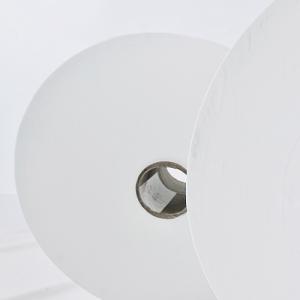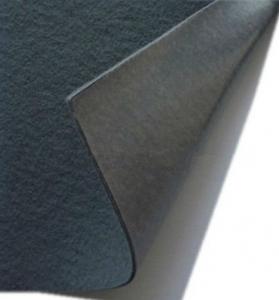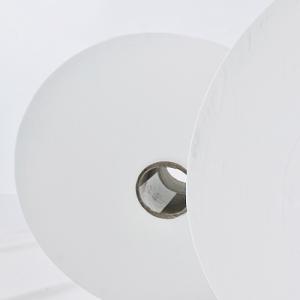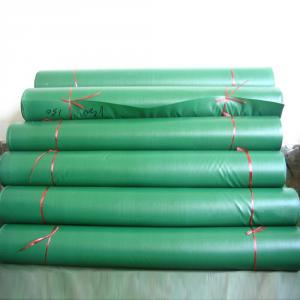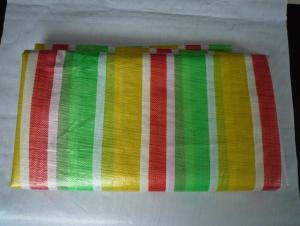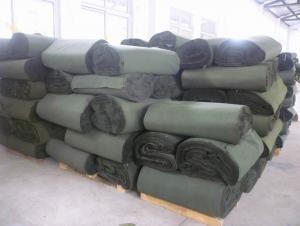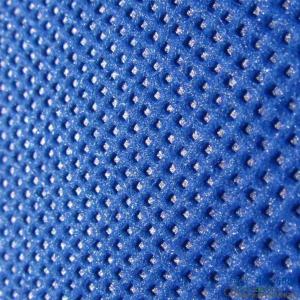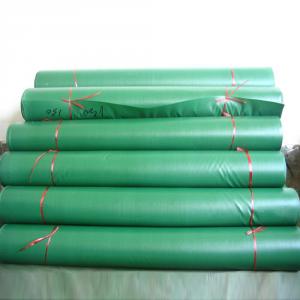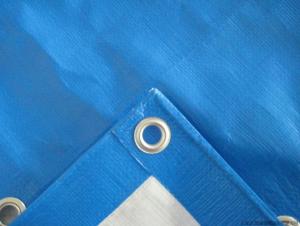Durable and reusedlaminated non woven fabric/polyester fabric roll/waterproof car carpet
- Loading Port:
- Shanghai
- Payment Terms:
- TT OR LC
- Min Order Qty:
- 1000 roll
- Supply Capability:
- 10000 roll/month
OKorder Service Pledge
OKorder Financial Service
You Might Also Like
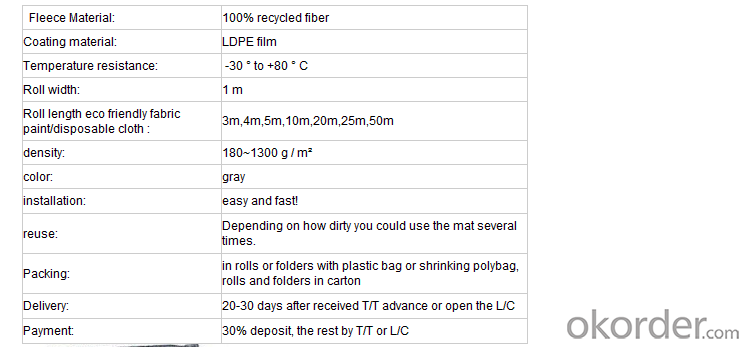 PP non woven weed control mat is made of environmentally friendly raw materials, pp spunbond nonwoven fabric. It used to prevent the growth of weed, without the use of potentially dangerous chemical sprays or labor intensive hoeing. Once installed, weed mat will continue providing protection for years without maintenance.
PP non woven weed control mat is made of environmentally friendly raw materials, pp spunbond nonwoven fabric. It used to prevent the growth of weed, without the use of potentially dangerous chemical sprays or labor intensive hoeing. Once installed, weed mat will continue providing protection for years without maintenance.
They are permeable fabrics, which allow air, water and nutrients to pass through, and designed to block out the sun to reduce photosynthesis and stop weed growth.
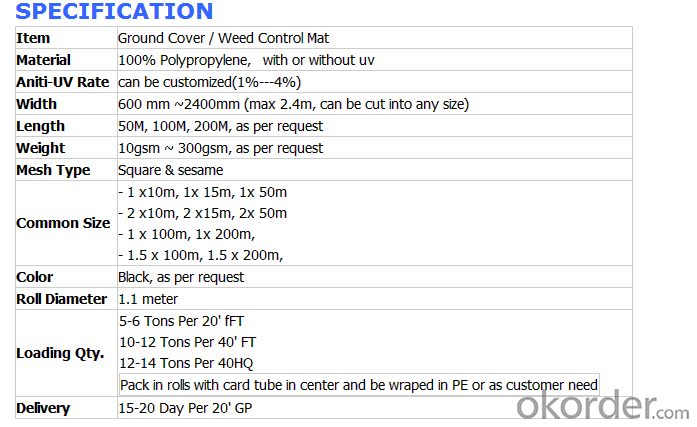
The use of landscaping fabrics has become extremely popular in recent years for many reasons:
1. Leisure time is maximised - the need for weeding and on-going maintenance is minimised
2. Environmentally friendly - no need for chemical based weed killers
3. Promotes healthier plants - it allows the soil to breath and water to permeate
We offer different types of weed control fabrics to suit all applications and budgets.
1. Available in a range of sizes & materials to suit various applications from small to large landscaping projects, in both commercial and domestic situations.
2. All our landscape fabrics are UV stabilised
3. Ideal for use under paths, patios, decking, paving, bark mulch, gravel etc.
FEATURES:
1. Weed suppressant and drainage control landscaping fabric
2. Spun bonded non-woven fabric – will not fray when cut
3. Easy to use
4. Environmentally friendly
5. Allows water, air and nutrients through, suppressing weeds without the use of chemicals
6. Good alternative to Plantex® where cost is a factor
7. UV Stabilised
8. Reduces the level of watering required due to the slower rate of water evaporation
FUNCTION:
1. Cover crops in the ground surface,prevent weeds and against the insect
2. Controlling soil humidity and the temperature
3. Does not affect the growth of the crops
4. Protects plants from harmfully solar radiation
5. Air permeability, water permeability help crops growth.
6. Mothproof, eco-friendly, breathable, anti-bacteria, tear-resistant, fusible
APPLICATIONS:
1. Weed block for landscaped garden beds
2. Permeable liners for planters (stops soil erosion)
3. Weed control under wooden decking
4. Geotextile for separating aggregate / soils under walkway blocks or bricks
5. Assists in preventing paving from settling unevenly
6. Landscape fabric prevents soil erosion
Health - Hygiene & Medical
Surgical Gowns
Gloves
Face Masks
Foot covers
Diapers
Caps
Bedsheets
Curtains
Pillow Covers
Slippers
Packaging
Sleeping Bags
Tarpaulins
Tents
Artificial Leather
Bags for Rice/Sugar etc.
Luggage
Vacuum Cleaner Bags
Tea and Coffee Bags
Buff Pads
Shopping Bags
Agriculture
Crop Covers
Turf Protections
Nursery Over wintering
Weed Control Fabrics
Root Bags
Containers
Capillary Matting
Other types of covers
Furniture Upholstery
Roofing and Tile Underlayment
Acoustical Ceilings
Insulation
House wrap
Pipe wrap
Sofa and Mattress Lining
Shoes & Garments
Coveralls
Pillow cases
Airline Headrests
Interlinings
Clothing and Glove insulation
Bra and Shoulder Padding
ADVANTAGES:
1. Lower labour costs as no weeding maintenance for years;
2. Water seeps through and can conserve soil moisture for improved growing conditions;
3. Air escapes – humidity rises through the mat for a more controlled growing environment;
4. Increase crop yields close to 25% due to improved growing conditions and absence of water stress and competition of nutrients absorption from weeds;
5. Minimises bacteria and fungus problems especially Algae;
6. Strong, woven construction or pressed fibre sheet resists tears and punctures;
7. Resistant to mildew, rot, water, sunlight and most of the agricultural chemicals
8. Fertilizer is applied on the mat, thus helping the owner or estate manager to monitor the progress of manuring;
9. Prevents soil erosion or leaching of soil nutrients or fertilizers applied;
10. Environmental friendly.
- Q: What are the textiles?
- Decorative textiles can be divided into indoor products, bedding and outdoor products, including home cloth and restaurant bath toiletries, such as: carpets, sofa sets, chairs, tapestries, patch, cover, textile, curtains, towels , Tablecloths, handkerchiefs, etc .; bedding, including bedspreads, bed sheets, was surface, quilt, blankets, towels, pillow core, the core, pillowcases and so on. Outdoor products include artificial turf and so on
- Q: Textile machine, I should use single-phase power or three-phase electricity
- Single-phase power production capacity must be almost, the security of the above words, the individual is much better, but the power to increase a little
- Q: The development of wool in Australia is not developed.
- Australia is rich in natural resources, is the world's major mineral resources producer and exporter, industry to mining, manufacturing and construction-based.
- Q: What is the difference between the nonwovens industry and the textile industry?
- To know the difference between the nonwovens and the textile industry, first look at the difference between nonwovens and textiles
- Q: What is the number of raw materials for textile enterprises?
- Cost calculation According to the comprehensive cost of the slurry, and then by the sizing rate to plan the need to consume the total amount of slurry to determine the cost of another sizing energy consumption is also a great cost.
- Q: What is eco textile?
- Consumption ecology - from the perspective of human ecology, the study of the residual toxic substances in textiles on human health; 3. dealing with ecology - from the perspective of ecological treatment, control of textile recyclable, natural degradation, waste treatment Its release of toxic substances harmless to the environment.
- Q: Analysis of import and export of textile
- Data changes show that China's textile industry has entered a cycle from high-speed growth to medium-speed growth, began to adjust the depth of the structure, to speed up the transformation and upgrading of the new history
- Q: What are the products produced by the textile mill?
- From the processing of the process, said: basically the fiber - yarn - line - cloth. Yarn is divided into weaving yarn, knitting yarn. Chemical fiber yarn is sprayed with spinneret. Cloth is divided into woven fabrics, knitted fabrics, finished dyeing and finishing yarn weaving and so on.
- Q: Why can the oil industry be used as raw materials for the textile industry?
- Ancient Chinese textile and printing and dyeing technology has a very long history, as early as in the primitive society, the ancients in order to adapt to climate changes, has learned to use materials, the use of natural resources as textile and printing and dyeing raw materials, and the manufacture of simple handmade textile tools. Until today, daily clothing, certain daily necessities and works of art are the products of textile and printing and dyeing technology.
- Q: Jiangsu Province, more than a large number of textile and garment industry
- How to deal with today's increasingly fierce competition in the textile market, bigger and stronger city textile industry, to speed up the realization of Nantong textile market into the city's goal, which is "Eleventh Five-Year" period Nantong textile industry shoulders the arduous task.
Send your message to us
Durable and reusedlaminated non woven fabric/polyester fabric roll/waterproof car carpet
- Loading Port:
- Shanghai
- Payment Terms:
- TT OR LC
- Min Order Qty:
- 1000 roll
- Supply Capability:
- 10000 roll/month
OKorder Service Pledge
OKorder Financial Service
Similar products
Hot products
Hot Searches
